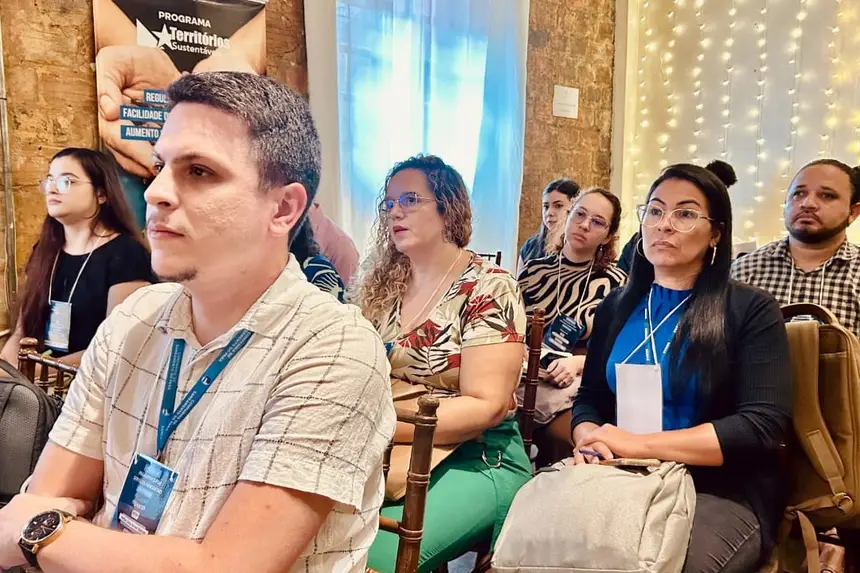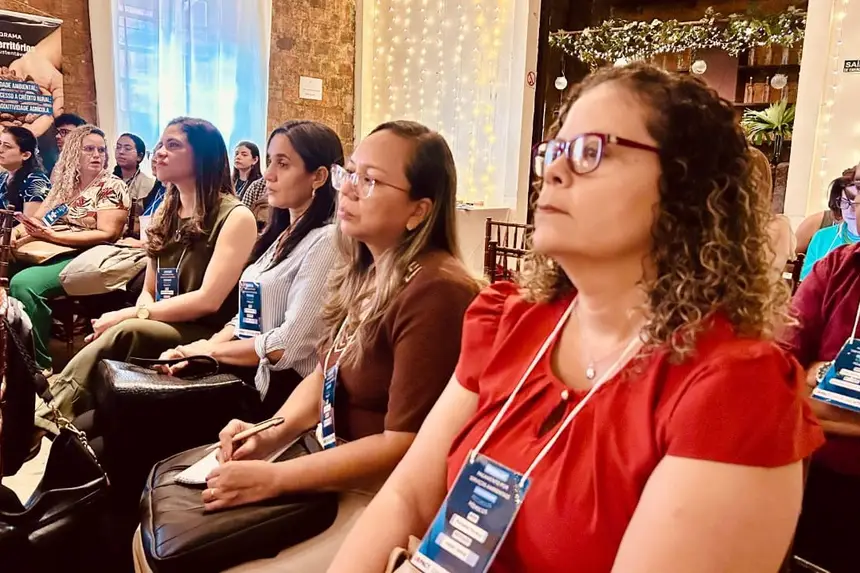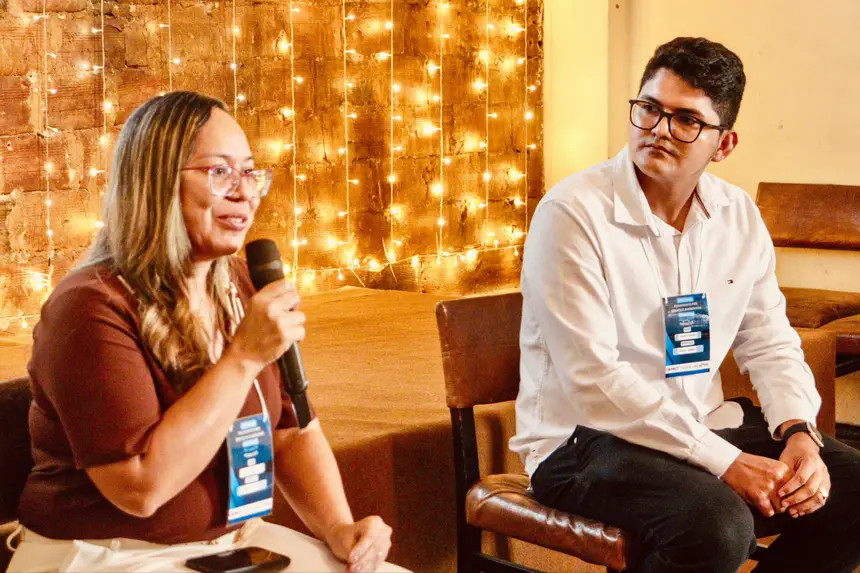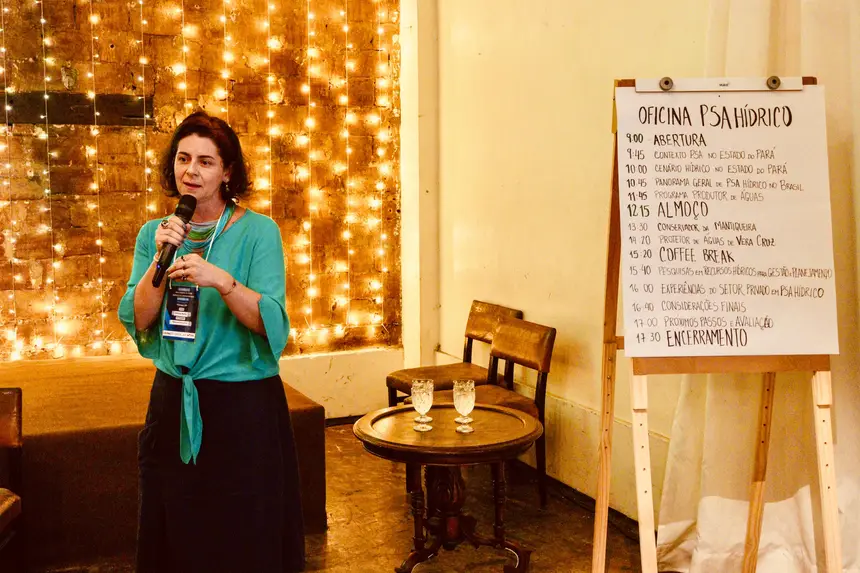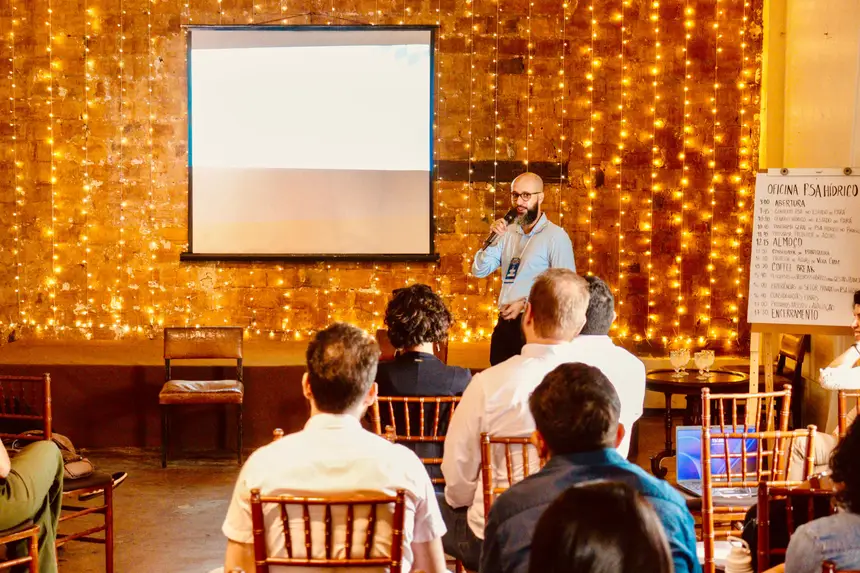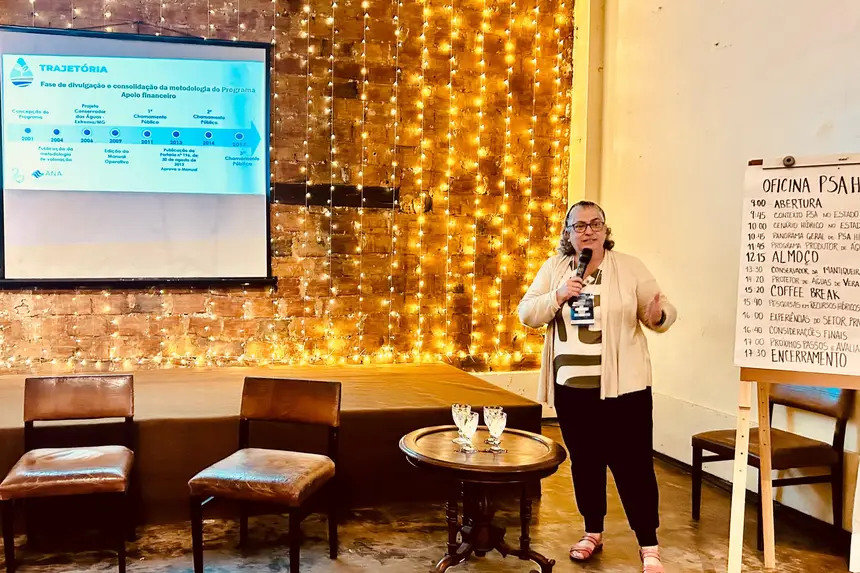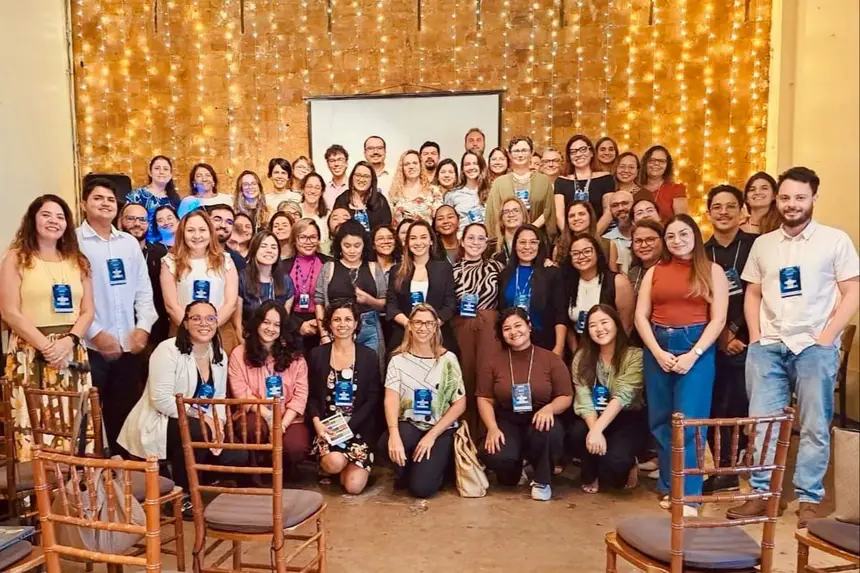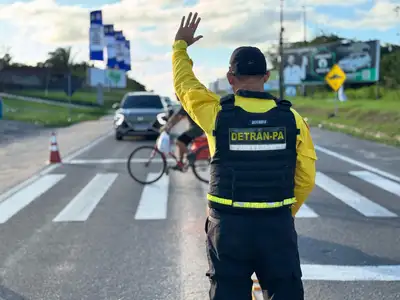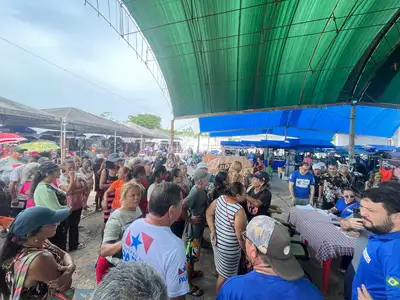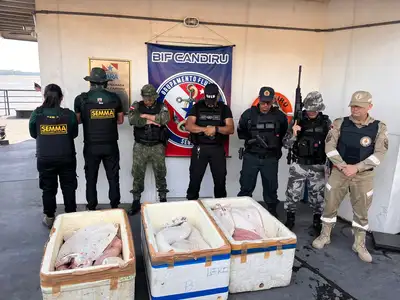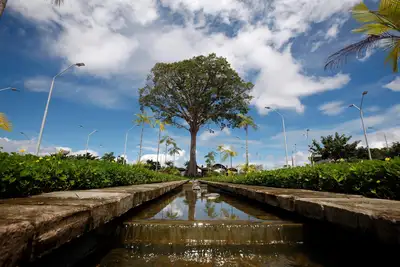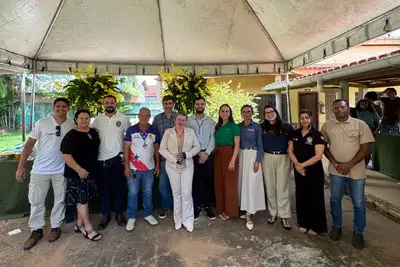Pará advances in the construction of the Payment for Environmental Services program focusing on water security
This aspect seeks to ensure direct benefits for productive sectors that depend on water resources, such as agriculture, industry, and energy generation, and for society in general.
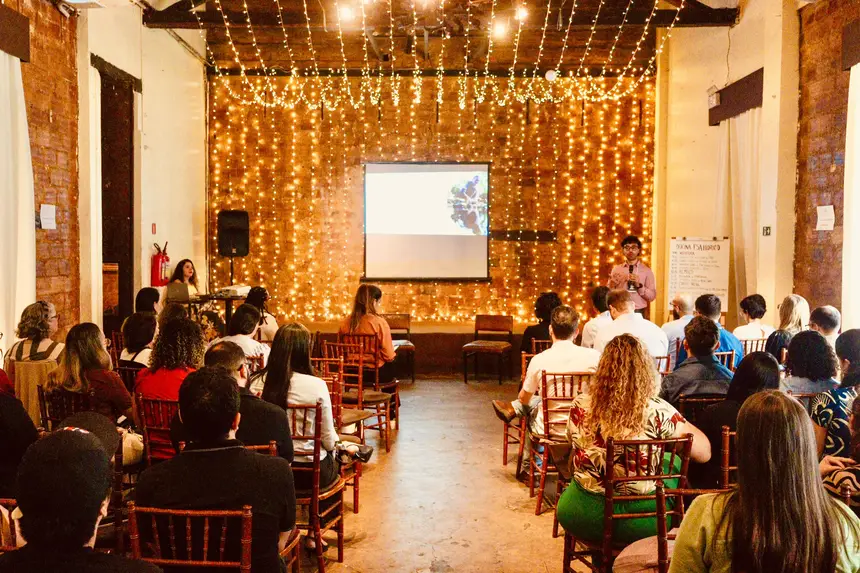
The State Secretariat for the Environment, Climate, and Sustainability (Semas) held a Payment for Environmental Services (PSA) workshop focused on water resources last Tuesday (2) in Belém. The meeting brought together representatives from the Government, private sector companies, and third sector organizations to discuss strategies for valuing and conserving that consolidate Pará in the environmental services agenda.
The State of Pará has been advancing since 2023 with the Sustainable Territories Valuation Project (Valoriza TS), established by Decree No. 3,527, which represents a milestone in the Payment for Environmental Services (PSA) agenda. The central objective of the initiative is to reduce greenhouse gas emissions, promote environmental and land regularization, in addition to benefiting rural producers and family farmers through economic incentives for the maintenance and conservation of their territories, directly contributing to the achievement of the goals of the State Plan Amazônia Agora.
Along this path, the State's environmental incentive policy strengthens and moves towards the implementation of new PSA modalities, among which the water PSA stands out, in its pilot phase, aimed at valuing ecosystem services related to water. This aspect seeks to ensure direct benefits for productive sectors that depend on water resources, such as agriculture, industry, and energy generation, and for society in general, by ensuring greater water security, environmental quality, and collective well-being.
The Deputy Secretary of Water and Climate Management at Semas, Renata Nobre, highlighted that the new pilot project has the potential to put Pará in the spotlight on the national water agenda. "We are building a public policy that combines social justice, climate change, sustainable development, and Amazon conservation. Pará challenges itself to create new mechanisms for improvements, new economies, and new ways to value our water resources and other environmental assets," she said.
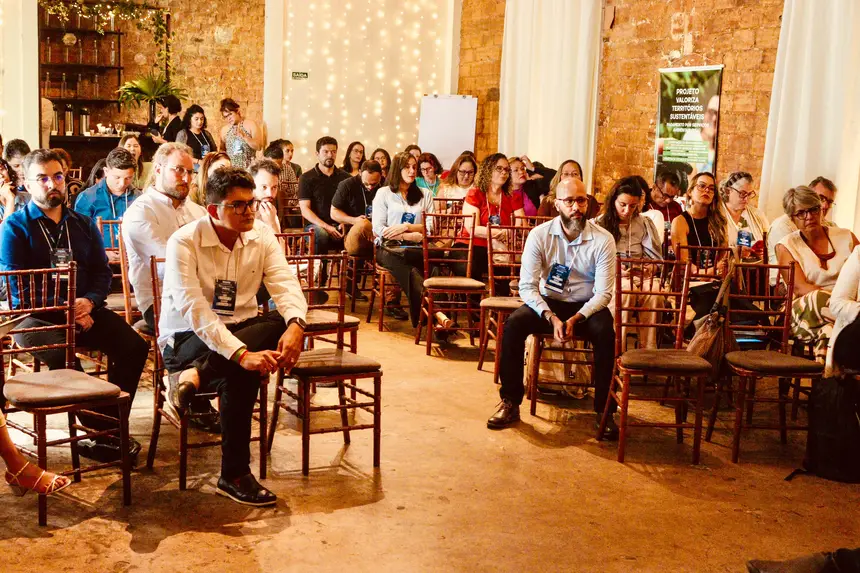
Currently, the State is a national reference in structuring policies aimed at environmental incentives, with pilot projects applied in restoration areas and in collective territories, serving as a basis for the expansion of the policy.
“The PSA workshop was a unique opportunity for the State of Pará, as it is a tool that can induce the execution and implementation of the state water resources policy, a differentiated policy aimed at decentralized and participatory management. The water PSA is a strategic tool to ensure security and sustainability in water use, benefiting various sectors of Pará. This workshop is an opportunity for our directorate, which is training and bringing learnings for the application and execution of actions in the water resources area,” explained the Director of Water Resources at Semas, Luciene Chaves.
The initiative also received recognition from partner organizations. For the conservation coordinator of The Nature Conservancy (TNC) and co-leader of the PSA Task Force of the Brazil Coalition on Climate, Forests, and Agriculture, Erika Pinto, Pará already demonstrates leadership. "The State is at the forefront by creating experiences in private areas and in collective territories. Now, the challenge is to expand beyond carbon, also valuing biodiversity, soils, and water, with diversified financing. Pará has the conditions to become a reference for all of the Amazon," she highlighted.
During the workshop, companies presented experiences based on existing water PSA initiatives in Brazil. The National Water and Basic Sanitation Agency (ANA) presented the Water Producer program, an initiative that seeks to support projects that contain actions for the conservation of water resources in rural areas focusing on water security, recognition, and encouragement of the environmental services provided by rural producers through actions for the conservation of water and soil on their properties.
The Projects and Carbon Coordinator of Votorantim Reserves, Tatiana Motta, presented the CarbonFlor methodology, which combines PSA indicators with carbon credit generation, respecting the specificities of Brazilian biomes. “Participating in this workshop was a great pleasure. The PSA agenda has progressed little in Northern Brazil, but Pará demonstrates organization and political will to make it happen. It is very important to see this movement from the state government, bringing diverse actors together to discuss unprecedented experiences and concrete possibilities for implementation,” she assessed.
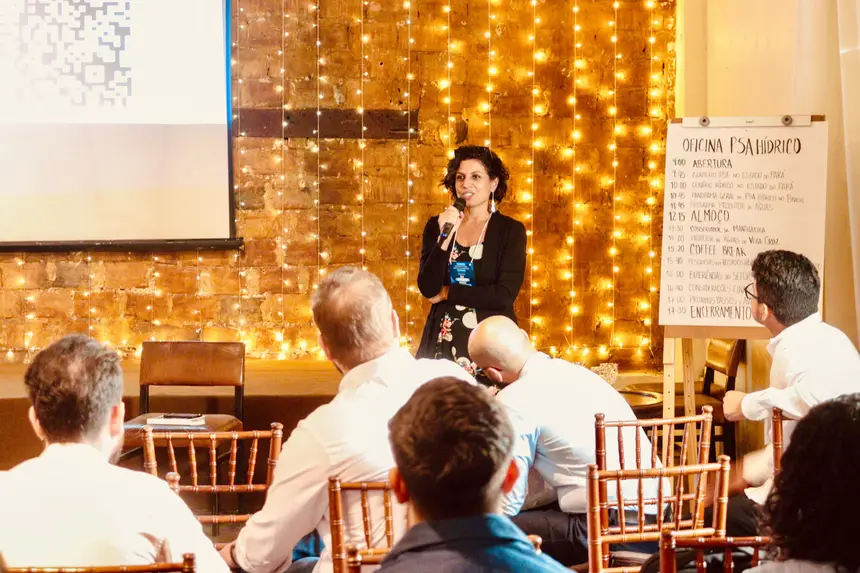
The researcher from the Vale Technological Institute (ITV), Paulo Pontes, highlighted that research in water resources can strengthen the program. “Pará has an ambitious goal of implementing the PSA, and our research can directly support this process, contributing to state policy and the sustainability of environmental services,” he said.
Also participating in the meeting were the company Philip Morris, which presented the Water Protector project in Vera Cruz (RS); The Nature Conservancy (TNC) shared the experience of the Mantiqueira Conservation Plan; the Vale Technological Institute (ITV) highlighted water resources in Pará; and the State University of Santa Cruz (UESC), which addressed the national panorama of water PSA.
The water PSA will be integrated into the Payment for Environmental Services program, currently being structured by the Government of Pará, as well as the Sustainable Territories Valuation project and the PSA aimed at collective territories. The expectation is that the policy will ensure water security, stimulate new investments in environmental conservation, and value Amazon biodiversity.
"This initiative will strengthen the structuring of the state program for Payments for Environmental Services, which, beyond pilot projects, should develop various modalities of PSA in the State and structure this policy," said Renata Nobre.
Text: Mário Gouveia/ Ascom Semas


